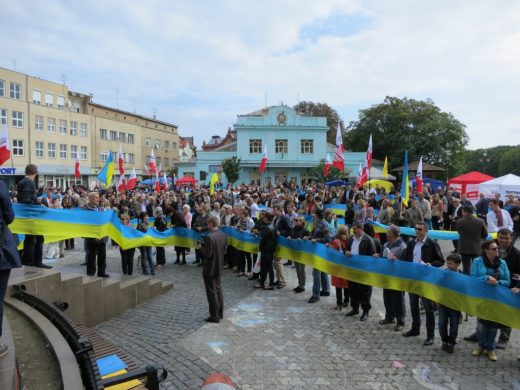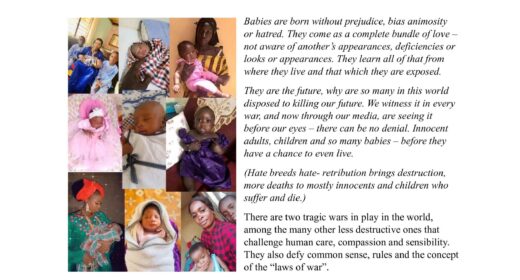
(Picture – Election Rally Uzhgorod, Ukraine 2014 Parliamentary Elections)
Initiative and action needed to solve our political ills
I began to write this article about the growing void between politics and democracy as we face elections in Newfoundland and Labrador and in Canada in 2015. It transformed as it unfolded.
We will be soon inundated with American political rhetoric as the stampede begins to replace Obama in the United States. Politics is much the topic of international news with wars and conflicts everywhere as people vie for power.
But, much of this is to disguise the real problems affecting the world and the people who inhabit it. The challenges of environmental destruction, polarization of wealth and assets and the growing threat of those disenfranchised through terrorist actions are but a few of the global concerns.
Resolutions to these dilemmas appear lacking and leadership mostly inept.
No country is exempt from these issues and their impacts and no leader or political system powerful enough to alter the destructive trajectory that the world appears to have taken. The potential for societal destruction and human demise is much more evident than at any time in the history of humanity.
Democratic political systems, especially in North America, but almost everywhere appear to be controlled by the few not the many. Lost is the concept of “government for and by the people”.
Yet, as we see in the US, Canada and in Newfoundland, politics is no longer about issues and policies, but about personalities, power and ego. It’s about how politicians can manipulate and control the people so that their power can be retained.
In Canada, many such manipulative tactics are evident. One only has to consider the fact that the 2015 budget is being delayed, and speculation is being floated on the timing of the election; even though there is now a law dictating its date.
In Newfoundland we have a government deciding to change the whole electoral boundary landscape in the hope it can retain power.
It appears that many of these political strategies are designed to create apathy and dissuade people from voting, because of the perceived advantage to the party in power.
People are asking what is the answer and what can I do. Most feel that there is no answer and there is nothing to be done. They perhaps surmise that another great war, world depression or environmental disaster is inevitable. Some even postulate that we are facing the end of time.
Nowhere evident
Policies and potential solutions to the ills of the country and this province are nowhere evident. Yet, people feel economically vulnerable, politically disenfranchised and many are without hope.
There is an alternative resolution that is evident throughout the world in places facing the greatest human challenges and where destitution is knocking on their doors.
This solution involves individual initiative and collective action. It means taking a stand for beliefs and what is important. It is not right nor left, religious nor political; even though some would argue that all actions are political.
It is spiritual, as it emanates from each person’s inner most desire and will to live and be free. It starts from one’s genuine beliefs, their circumstance, where they live and begins in their homes, on their street and in their neighbourhood.
It doesn’t require great knowledge, although some would suggest such activities should be left to professionals or those with credentials. Neither does it need large amounts of capital, despite perceived funding shortages; nor does it call for sophisticated systems and programs, albeit that is the focus of most current local development activities.
It does though require thoughtfulness, care, consideration and compassion for all who share the world, especially those closest. Most of all it requires dialogue, communications and tolerance.
It is neither immediate nor easy and takes time, action and perseverance.
This approach was evident in local development throughout Canada (and in many other countries) during the Great Depression and also in the 1960s and 1970s when similar local development movements appeared; many with the support and direction of governments.
It is a process which became known as community development.
The concept is based on individual and local power and communal action. It is not new, it is not unique and is not complex; despite all the jargon and sophisticated language that now surrounds it by the institutions that try to manage and control it.
It has been proven throughout history that when enough people get together to deal with an issue or desire that their actions can be transformative. There are many examples to cite over the past number of years. Most vivid were those movements which toppled abusive leaders and corrupt governments through the collective action of people.
Such a movement was evident recently in Paris when so many people and world leaders came together with a common belief and a necessity to act.
If this people approach were emulated on a local level in many countries in the world consider the transformation that could happen in a global context. It then could be truly said that we have people power.
Most importantly, political leaders would perhaps come to realize that the world is not about them. They might understand that it is about the collective “us” and how we interact with each other and our now so fragile environment.
Written by Bill Pardy
Published by the Western Star
February 3rd, 2015


